Draped in neon colors and music, Superestar is an intimate snapshot into a chance encounter between two Salvadoran women. Miranda is an up and coming indie pop singer and Christina is a nightclub bathroom attendant. The pair find common ground and a bond forms through the course of the night.
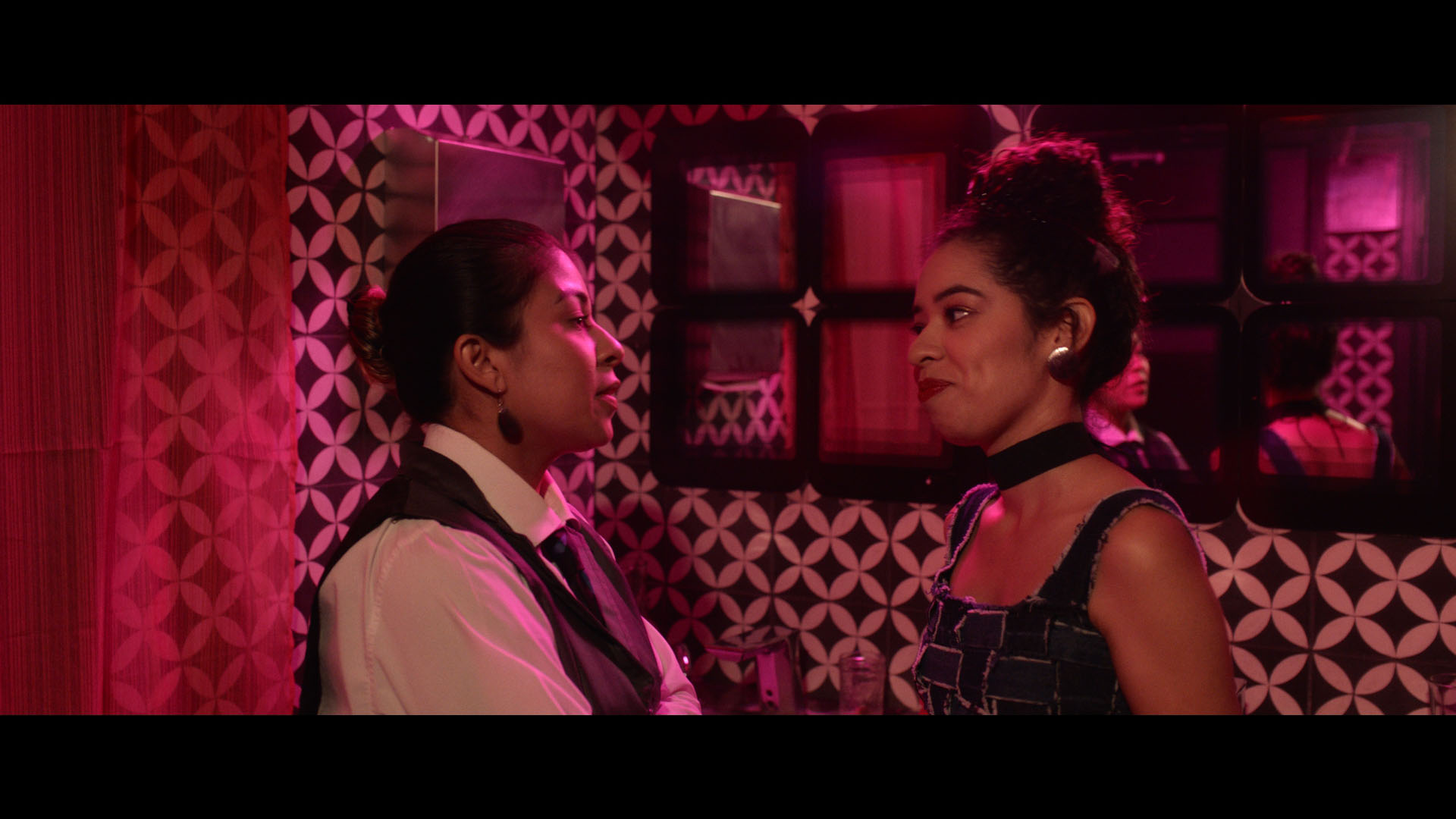
For director and writer, Daniel Larios, the idea from the short came from two places. The first was a drunk night at a Koreatown nightclub. Like in Superestar, the bathroom attendant was also Salvadoran. “Basically, every time I needed to go back to the restroom, we would just keep talking.” explains Larios. “I ended up remembering that and feeling like that was something that meant something for me. I felt like that is an experience, a lot of people who are navigating, I guess predominantly white spaces, or certainly non-Latinx spaces. How a moment when you see someone that identifies with the same thing you are. Kind of that recognition and a sort of instant camaraderie, but also a sense of needing to prove a bit of authenticity of checking yourselves that you’re on the same page about what this is and how you live it, especially in an American context.”
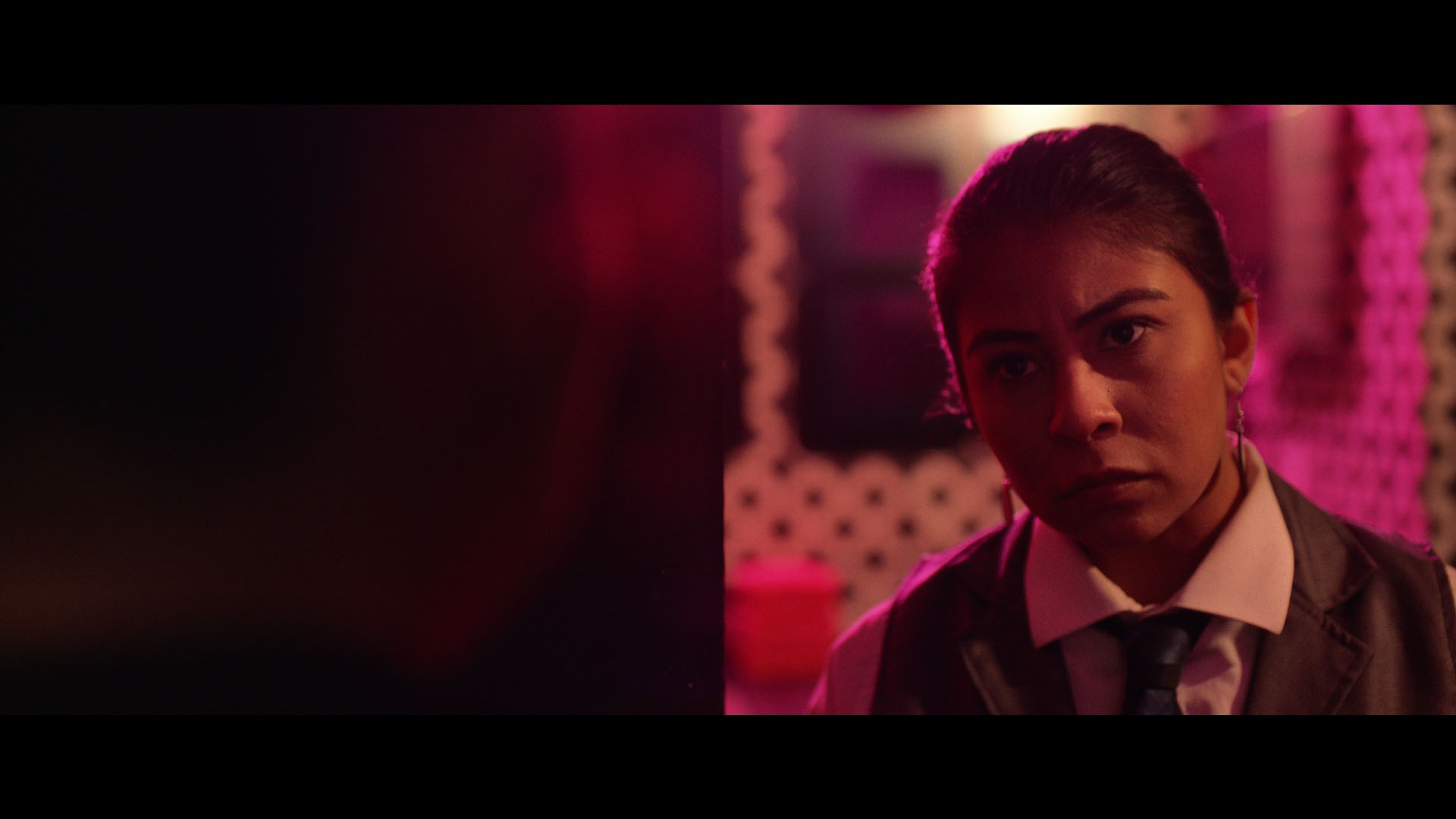
The second place came from working in various assistant positions in LA and realizing that he would be the only Latinx person in the room. The only other people that would look like him would be cleaning staff or servers. “There’s this awkward feeling of, you know, you have a seat at the table, and it’s the worst one. And what do you do with that? How do you not lose a sense where you’re coming from?”
When writing the short film, Larios paid special attention to how different generations have different experiences with their identity. “There are plenty of Salvadoran immigrants who are the same ages as US born Salvadorans. And they have dramatically different experiences and priorities in their lives because of the privileges that their parents, who basically walk the same path that the others are walking now, had to go through.” In Superestar, Larios wanted to find common ground in that difference, “The characters relate to each other, it’s a recognition and I think a respect for understanding what the two generations need and how they can be supportive to each other. Recognizing and respecting those as two valid ways of being Salvadoran American in the US. I wanted to write them from a very specific Salvadoran standpoint.”
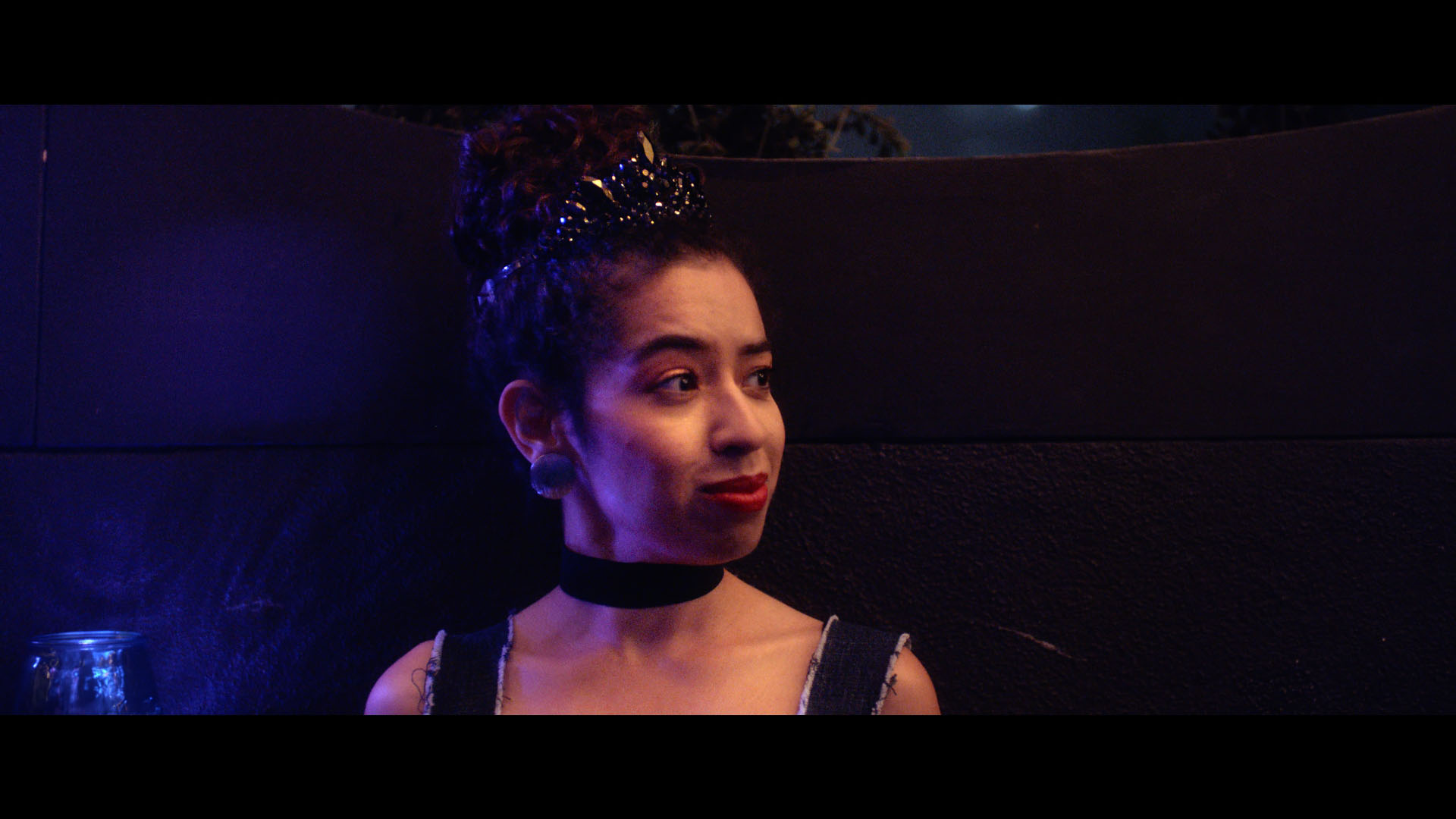
Part of developing that specific Salvadoran standpoint comes from language and casting. “There’s very sharp, both linguistic and cultural distinctions between Central America and Mexico, and tensions between as well.” Both women cast for the roles of Miranda and Christina are Salvadoran and Larios used their input to make language adjustments to the dialogue. “I wanted them to not conform, my idea or my tia, tios, idea of Salvadoran speech, but, adjust accordingly to what they felt is true for them.”
One of the major elements in the film is its original music — something that wasn’t so heavily featured in earlier drafts. After sending some ideas to Lucy V, the music supervisor and songwriter for the short, the two were able to collaborate and find the right beats for Miranda’s character. “Lucy reached out to me, I didn’t even reach out to her. She was like, I hear you’re doing this project, I’d love to be part of it. So that was a really exciting thing — to have these other artists who just felt what you are into, (and say) “I support it, and I want to be part of it” and kind of help you along the way.
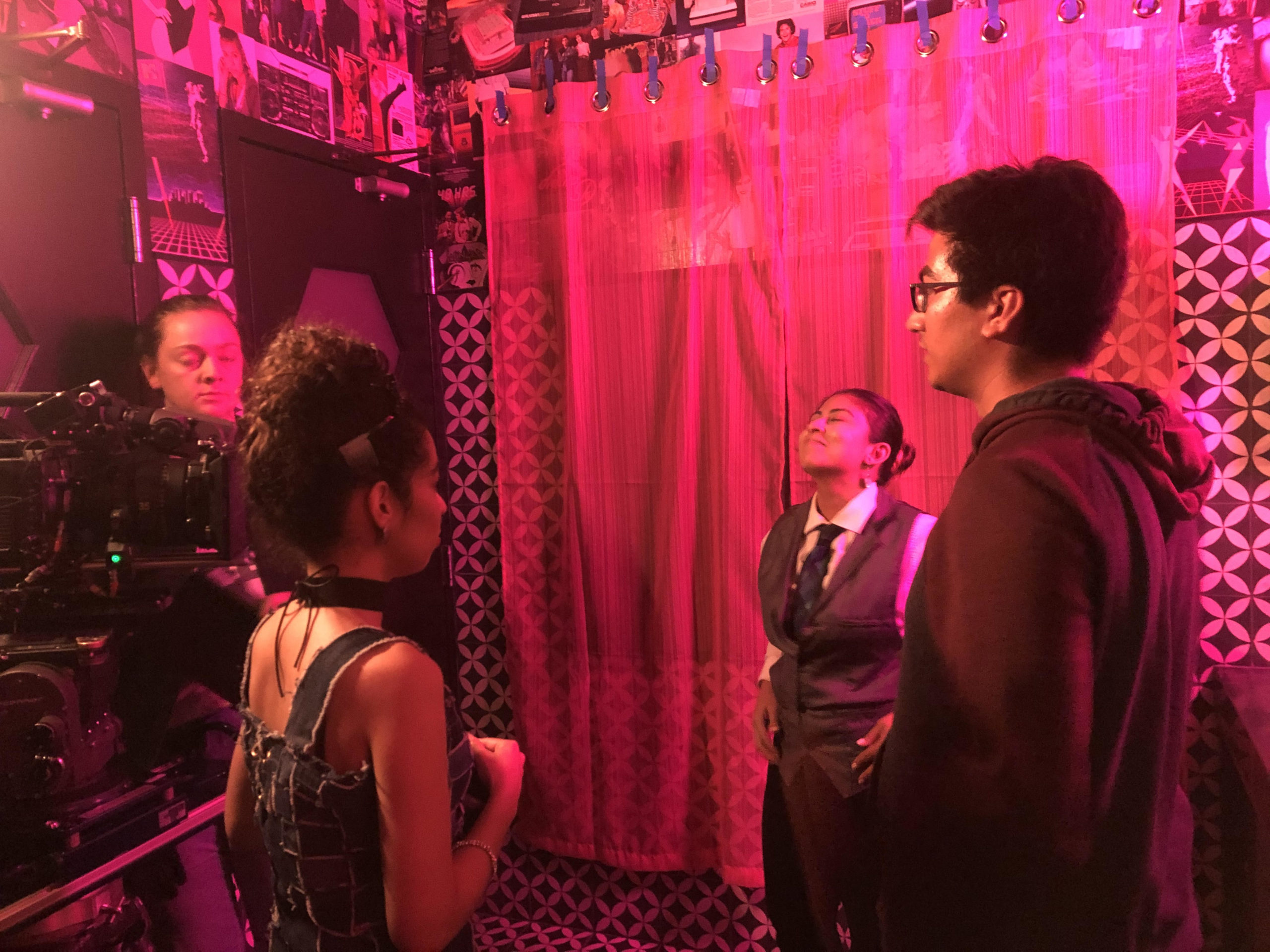
Daniel’s Favorite Part to Film:
“The heart of the film, and increasingly in the edit, it became clearer and clearer — is just the stretch of the film towards the end, where it’s just the two of them in the bathroom, talking and bonding. That was like the best part. It was really fun to just be able to just be with two actors in one room, and just try out different things and really explore the relationship and the intimacy between them.”
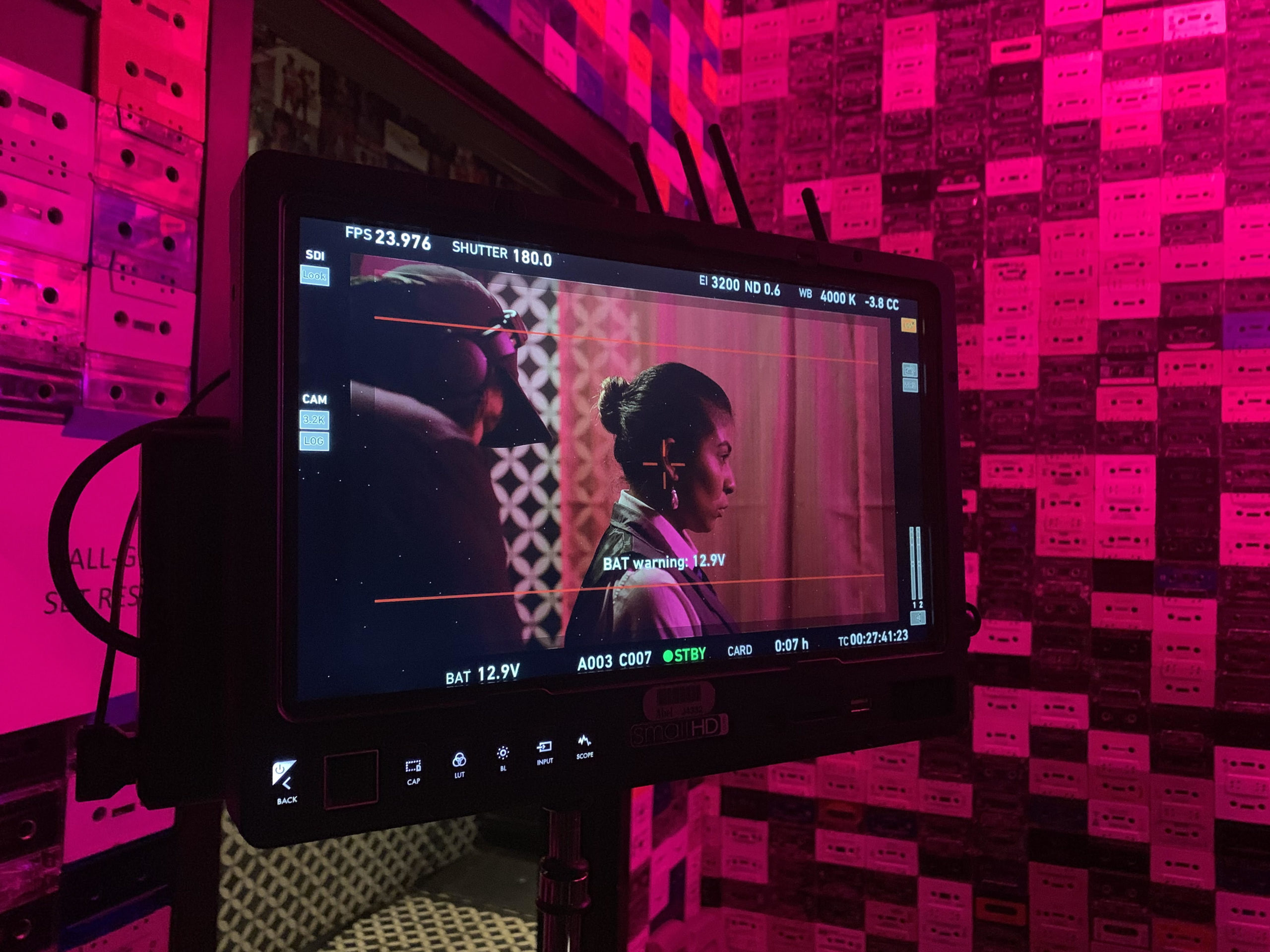
What’s next?
Right now I’m editing a short memoir film. I guess it’s a nonfiction film, like a documentary film kind of, made out of years of home footage and intentionally shot footage as well. About kind of, I guess I call it like a survivor’s guilt of living in the diaspora. I’ve lived in El Salvador for many years and I was a teenager. Coming back was a reverse culture shock. When I got back to the States, I was not used to feeling safe at night, over there, that’s not really a thing. The communities we’re living in, you don’t go out at night, in certain areas, and alone, certainly not a sense of security, but, in many ways, I suddenly had again, and felt guilty for having. Sometimes it hits me now. I’ll be out at a bar with friends laughing at 1am and I’ll know that that’s not something you can do over there, really, for most people. A sense of just guilt, I guess, for having a better life, which is the point and in some senses, a shame that I sometimes deal with. I suspect a lot of people in diasporas from dangerous countries can experience. So I’m kind of exploring that and unpacking it in that project. I’ve also written a feature that I’m really excited to push. It’s a very personal film, and I wrote it. I really want it to be like my first feature.It’s about my family but it’s a fiction film. It explores family dynamics. I think a lot of it is examining the toll it takes on families that come here and kind of pursue this idea of the “American Dream”, and maybe even succeed, and living a middle class life. But there’s certain traumas and things that no amount of money can fix, and kind of exploring the things that aren’t solved. You’ve come here, and maybe you have security, and maybe you have retirement money, and maybe your kids are able to pursue jobs that are both practical and impractical, because you worked hard for that. But at the end of the day, there’s things that that kind of success just can’t resolve. And so I guess it’s a real exploration of an existential anxiety and of immigrant Latinx families in the US.
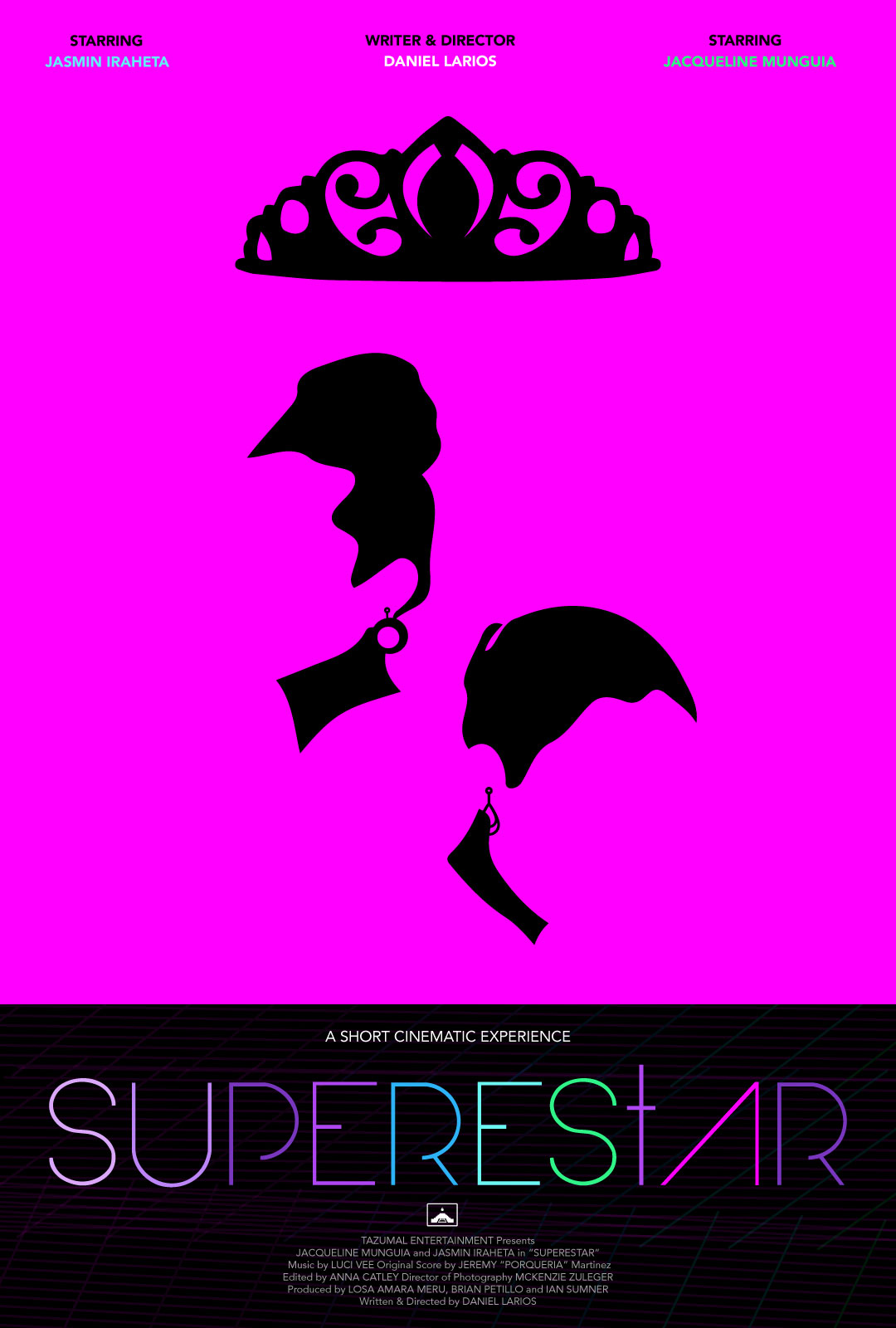
Superestar plays next at Newfilmmakers Los Angeles from September 17-18th. Learn more info by clicking here!